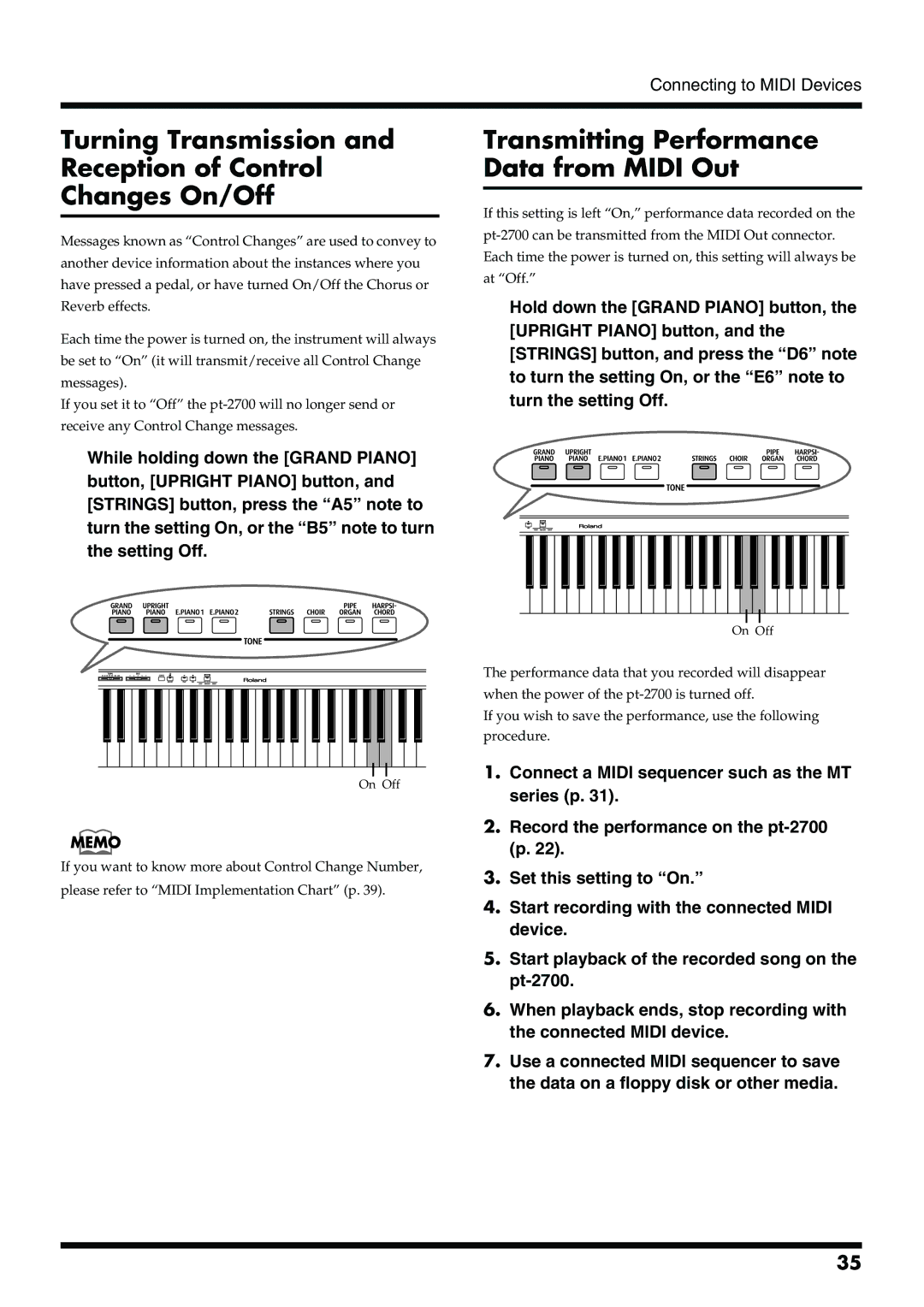
Connecting to MIDI Devices
Turning Transmission and
Reception of Control
Changes On/Off
Messages known as “Control Changes” are used to convey to another device information about the instances where you have pressed a pedal, or have turned On/Off the Chorus or Reverb effects.
Each time the power is turned on, the instrument will always be set to “On” (it will transmit/receive all Control Change messages).
If you set it to “Off” the
While holding down the [GRAND PIANO] button, [UPRIGHT PIANO] button, and [STRINGS] button, press the “A5” note to turn the setting On, or the “B5” note to turn the setting Off.
fig.8-12.e
On Off
If you want to know more about Control Change Number,
please refer to “MIDI Implementation Chart” (p. 39).
Transmitting Performance Data from MIDI Out
If this setting is left “On,” performance data recorded on the
Hold down the [GRAND PIANO] button, the [UPRIGHT PIANO] button, and the [STRINGS] button, and press the “D6” note to turn the setting On, or the “E6” note to turn the setting Off.
fig.8-13.e
On Off
The performance data that you recorded will disappear when the power of the
If you wish to save the performance, use the following procedure.
1.Connect a MIDI sequencer such as the MT series (p. 31).
2.Record the performance on the
3.Set this setting to “On.”
4.Start recording with the connected MIDI device.
5.Start playback of the recorded song on the
6.When playback ends, stop recording with the connected MIDI device.
7.Use a connected MIDI sequencer to save the data on a floppy disk or other media.
35
